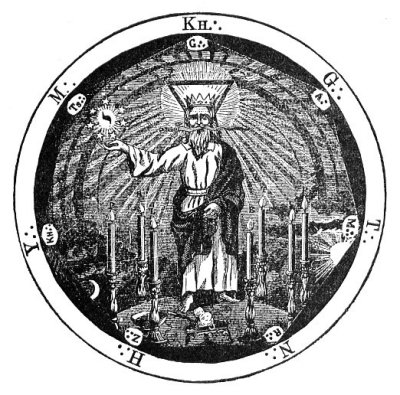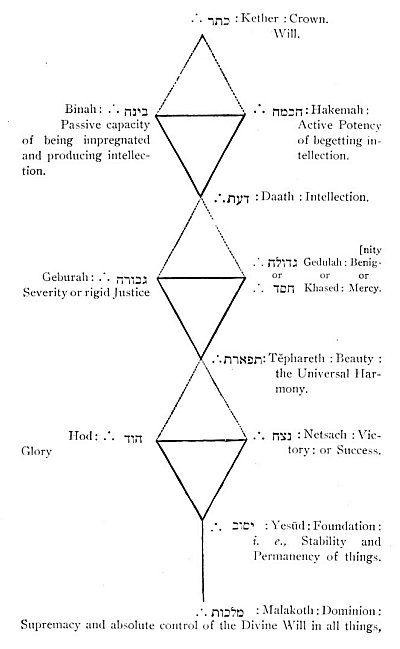p. 246
THIS is the first of the Philosophical Degrees of the Ancient and Accepted Scottish Rite; and the beginning of a course of instruction which will fully unveil to you the heart and inner mysteries of Masonry. Do not despair because you have often seemed on the point of attaining the inmost light, and have as often been disappointed. In all time, truth has been hidden under symbols, and often under a succession of allegories: where veil after veil had to be penetrated before the true Light was reached, and the essential truth stood revealed. The Human Light is but an imperfect reflection of a ray of the Infinite and Divine.
We are about to approach those ancient Religions which once
p. 247
ruled the minds of men, and whose ruins encumber the plains of the great Past, as the broken columns of Palmyra and Tadmor lie bleaching on the sands of the desert. They rise before us, those old, strange, mysterious creeds and faiths, shrouded in the mists of antiquity, and stalk dimly and undefined along the line which divides Time from Eternity; and forms of strange, wild, startling beauty mingled in the vast throngs of figures with shapes monstrous, grotesque, and hideous.
The religion taught by Moses, which, like the laws of Egypt, enunciated the principle of exclusion, borrowed, at every period of its existence, from all the creeds with which it came in contact. While, by the studies of the learned and wise, it enriched itself with the most admirable principles of the religions of Egypt and Asia, it was changed, in the wanderings of the People, by everything that was most impure or seductive in the pagan manners and superstitions. It was one thing in the times of Moses and Aaron, another in those of David and Solomon, and still another in those of Daniel and Philo.
At the time when John the Baptist made his appearance in the desert, near the shores of the Dead Sea, all the old philosophical and religious systems were approximating toward each other. A general lassitude inclined the minds of all toward the quietude of that amalgamation of doctrines for which the expeditions of Alexander and the more peaceful occurrences that followed, with the establishment in Asia and Africa of many Grecian dynasties and a great number of Grecian colonies, had prepared the way. After the intermingling of different nations, which resulted from the wars of Alexander in three-quarters of the globe, the doctrines of Greece, of Egypt, of Persia, and of India, met and intermingled everywhere. All the barriers that had formerly kept the nations apart, were thrown down; and while the People of the West readily connected their faith with those of the East, those of the Orient hastened to learn the traditions of Rome and the legends of Athens. While the Philosophers of Greece, all (except the disciples of Epicurus) more or less Platonists, seized eagerly upon the beliefs and doctrines of the East,–the Jews and Egyptians, before then the most exclusive of all peoples, yielded to that eclecticism which prevailed among their masters, the Greeks and Romans.
Under the same influences of toleration, even those who embraced Christianity, mingled together the old and the new, Christianity
p. 248
and Philosophy, the Apostolic teachings and the traditions of Mythology. The man of intellect, devotee of one system, rarely displaces it with another in all its purity. The people take such a creed as is offered them. Accordingly, the distinction between the esoteric and the exoteric doctrine, immemorial in other creeds, easily gained a foothold among many of the Christians; and it was held by a vast number, even during the preaching of Paul, that the writings of the Apostles were incomplete; that they contained only the germs of another doctrine, which must receive from the hands of philosophy, not only the systematic arrangement which was wanting, but all the development which lay concealed therein. The writings of the Apostles, they said, in addressing themselves to mankind in general, enunciated only the articles of the vulgar faith; but transmitted the mysteries of knowledge to superior minds, to the Elect,–mysteries handed down from generation to generation in esoteric traditions; and to this science of the mysteries they gave the name of Γνῶσις; [Gnosis].

Moe is the founder of GnosticWarrior.com. He is a father, husband, author, martial arts black belt, and an expert in Gnosticism, the occult, and esotericism.








